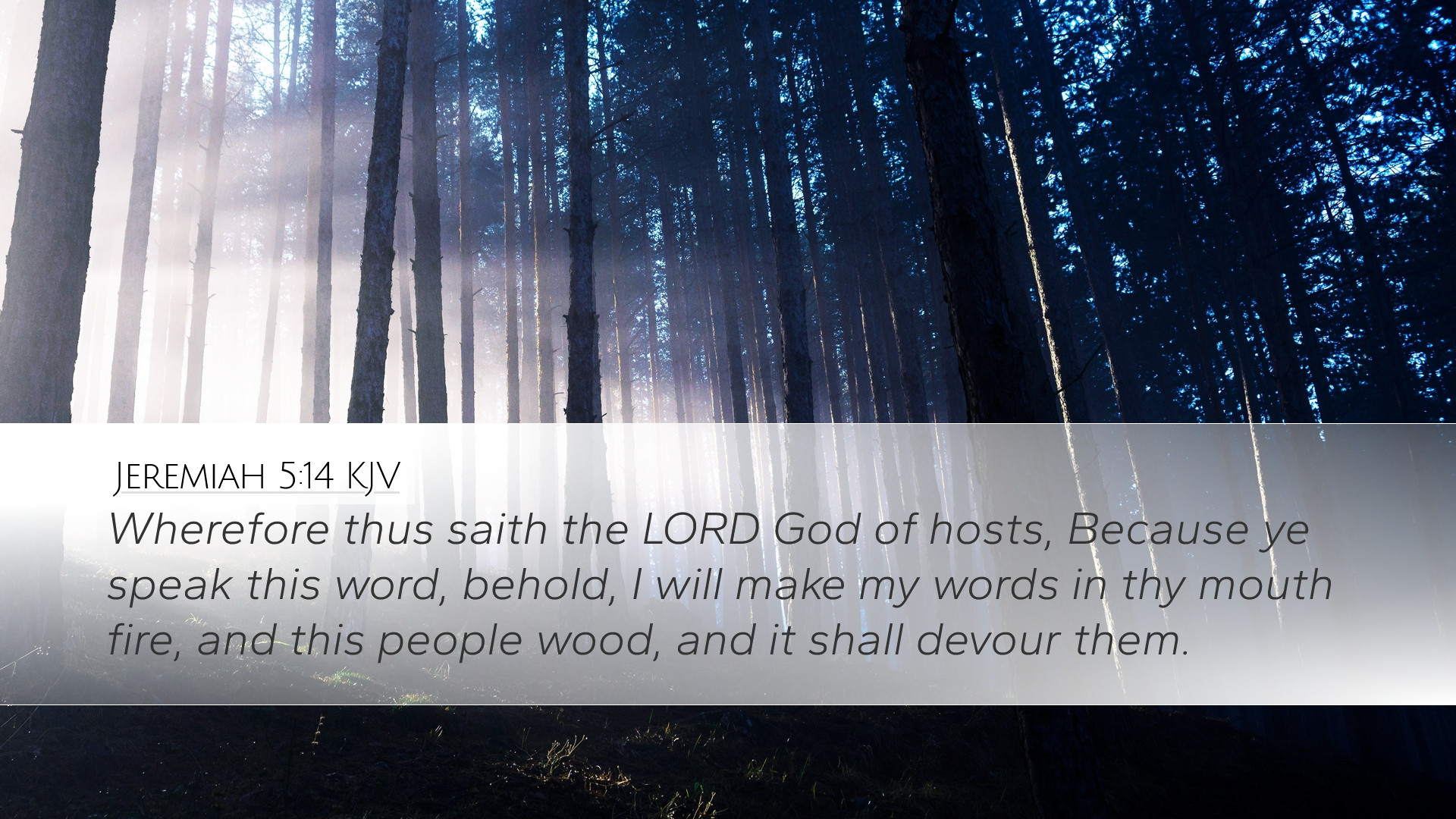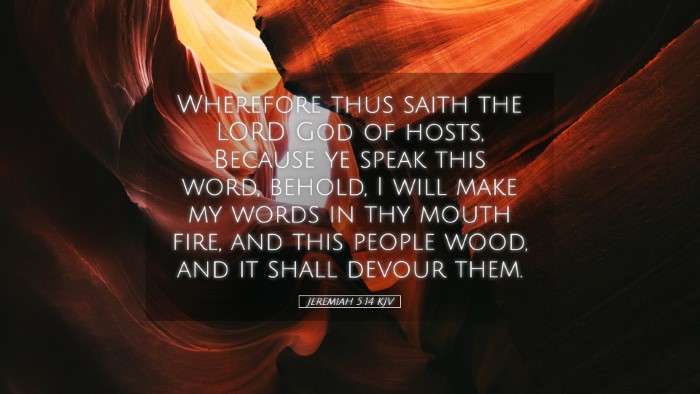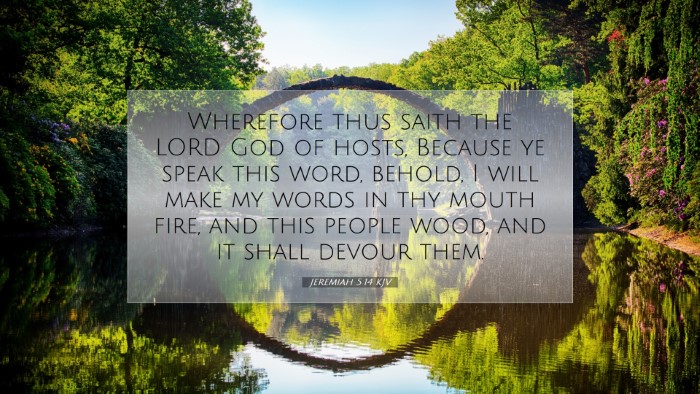Commentary on Jeremiah 5:14
Verse Reference: Jeremiah 5:14 - "Therefore thus saith the Lord God of hosts, Because ye speak this word, behold, I will make my words in thy mouth fire, and this people wood, and it shall devour them."
Introduction
The book of Jeremiah is a profound narrative that encapsulates the struggles and burdens of a prophet called to deliver a message of warning and impending judgment to the people of Judah. In Jeremiah 5:14, we find God, through His prophet, declaring a solemn pronouncement that not only reflects the gravity of Judah's situation but also serves as a manifestation of divine authority. This verse encapsulates themes of judgment, the power of God’s Word, and the consequences of rebellion against God.
The Context of Jeremiah 5:14
This citation comes at a time when the people of Judah were indulging in sinful behavior, rejecting prophetic warnings, and remaining unrepentant despite the declarations of God through Jeremiah. Public domain commentaries provide valuable insight into the social and religious climate during this prophet's ministry.
- Matthew Henry notes the backdrop of corruption and idolatry rampant in Jerusalem. He emphasizes the spiritual barrenness that led to the people’s hardened hearts, rendering them impervious to divine warnings.
- Albert Barnes highlights the necessity of communicating God’s messages with authority. He underscores the symbolism of God's judgment, represented as fire set against the wood, illustrating the devastation awaiting those who ignore divine instruction.
- Adam Clarke elaborates upon the metaphor of the fire consuming wood, elucidating how God’s Word acts as both a means of purification and a catalyst for judgment against those who stand opposed to His will.
Theological Insights
Jeremiah 5:14 presents profound theological insights relevant to contemporary faith discussions:
- The Authority of God’s Word: The statement, "I will make my words in thy mouth fire," conveys the power and efficacy of God’s spoken Word. Pastors and theologians may reflect on how God’s Word is not merely informational but transformational, shaping the very reality of those who embrace or reject it.
- The Role of Judgment: The burning wood symbolizes the finality of judgment against sin. Matthew Henry remarks that the fire signifies divine retribution, essential in understanding the holiness of God and the seriousness of sin.
- Call to Repentance: The preceding verses serve as a foreshadowing of what is to come if the people do not turn back to God. It reminds modern readers of the continuous call to repentance and the dire consequences of neglecting this vital aspect of faith.
Application for Contemporary Believers
This verse holds significant implications for pastors, students, and scholars of the Bible:
- Preaching with Power: Pastors are encouraged to embrace the authority of God’s Word, preaching it with the conviction that it can ignite change and confront sin. Albert Barnes' commentary encourages a bold proclamation of truth.
- Understanding God’s Justice: Students and theologians should dwell on the nature of God's justice. Adam Clarke reminds scholars to explore the dual nature of God's Word—serving as both a source of hope and a declaration of judgment.
- Emphasizing Personal Responsibility: The invocation of fire as a consuming element calls for introspection among believers about personal accountability concerning God's Word. Reflection on how obediently they respond to divine challenges can lead to spiritual growth.
Conclusion
In summary, Jeremiah 5:14 encapsulates significant truths about God's judgment and the power of His Word. The combined insights from public domain commentaries illuminate both the historical and theological implications for contemporary readers. As believers reflect on this verse, they are called to recognize the seriousness of sin, the authority of God's Word, and the urgent need for repentance. The imagery of fire serves as a potent reminder that spirituality demands both reverence and responsiveness to God's transformative authority.


